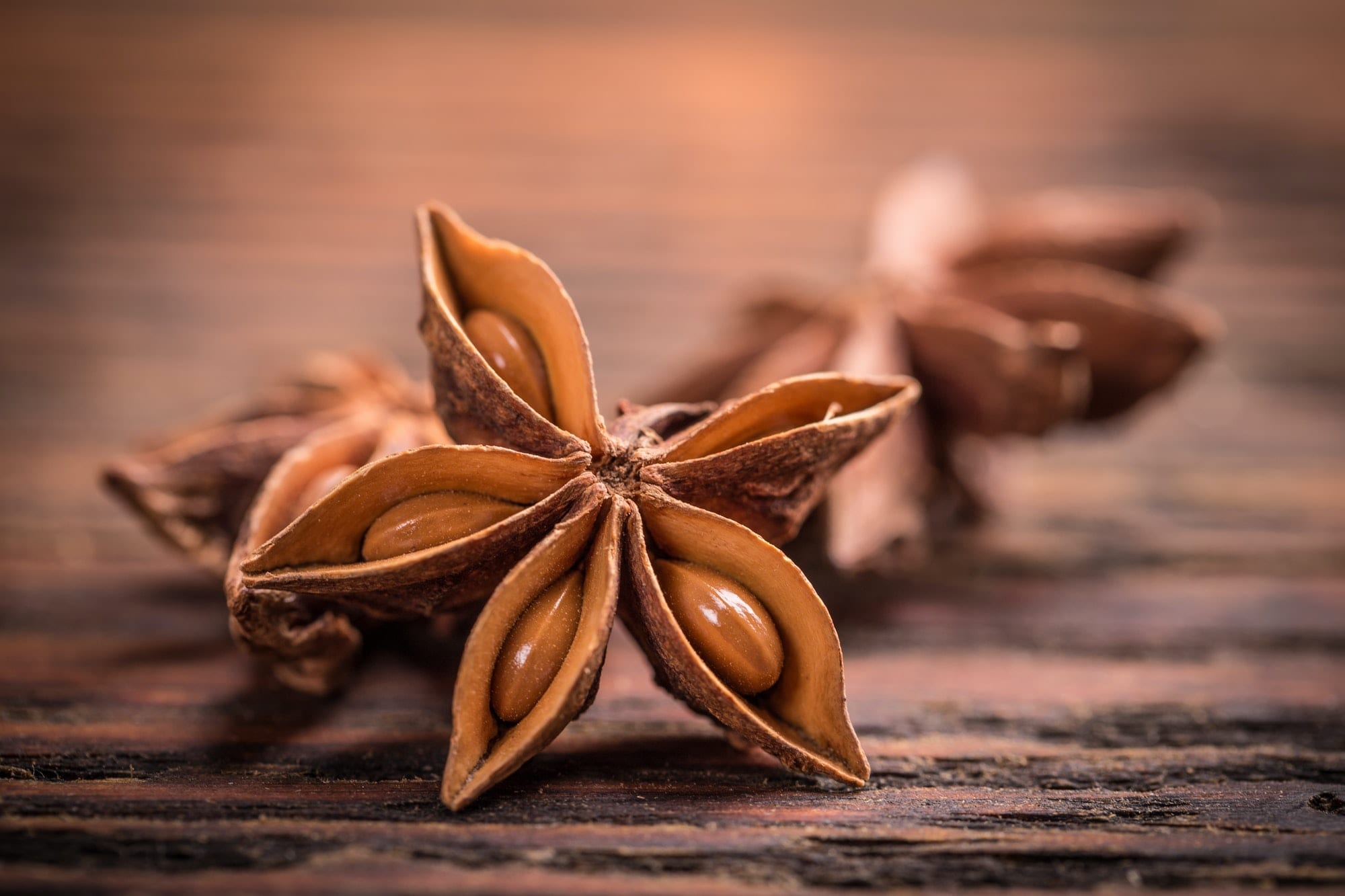
Star anise (also known as badain anise), when whole, is an eight-pointed star shape around the size of a small broad bean and is mid to dark brown in colour in its dried form.
It has an aniseed flavour that is sweet and mildly spicy with a liquorice type aroma.
Whilst it is predominantly used in Chinese cooking, it is also widely used in Pakistani and Indian cuisine.
It is the dominant flavouring in five spice powder, in Vietnamese Pho, and mulled wine.
Star anise oil is highly fragrant and is used in cooking, perfumes, soaps, toothpaste, mouthwashes and skin creams.
Background
Star anise is the seed pod from an evergreen tree native to Vietnam and southwest China and the tree is a member of the magnolia family.
It has been in use from 100 BC and was introduced to the UK in around the sixteenth century.
It was traditionally used in the UK for its sweet flavour in fruit compotes, jams and puddings.
It is also used in the production of aniseed liqueurs such as Pernod and Sambuca.
The oil contained in the seed pods are used in tomb incense in Japan.
Edible star anise from Vietnam and China should not be confused with Japanese star anise, which is a neurotoxin and should not be eaten.
Uses for Star Anise
Star anise seeds can be used for culinary purposes either whole or ground, with minced meats or dough prior to cooking.
It goes particularly well with duck dishes in powdered form as a rub (ground), or in whole form in slow cook casseroles and stews. The whole star anise can be removed before eating.
Whole star anise can also be placed on top of fish prior to cooking when wrapped in foil or baking sheets.
When used ground it can be combined with other spice to make a garam masala and is then best used with meat-based curries.
The seeds can also be used to make a liquorice tasting tea.
Medicinal uses for Star Anise
Star anise provides one of the compounds in the production of Tamiflu (antiviral medication).
It has been used in traditional Chinese medicine for centuries.
Essential oil made from star anise have been shown to be effective in treating viral infections, including herpes simplex type 1.
There is some evidence that its antifungal properties can help in preventing the growth of fungus in certain edible crops.
Scientists are researching the use of star anise antibacterial properties in the production of new antibiotics.

